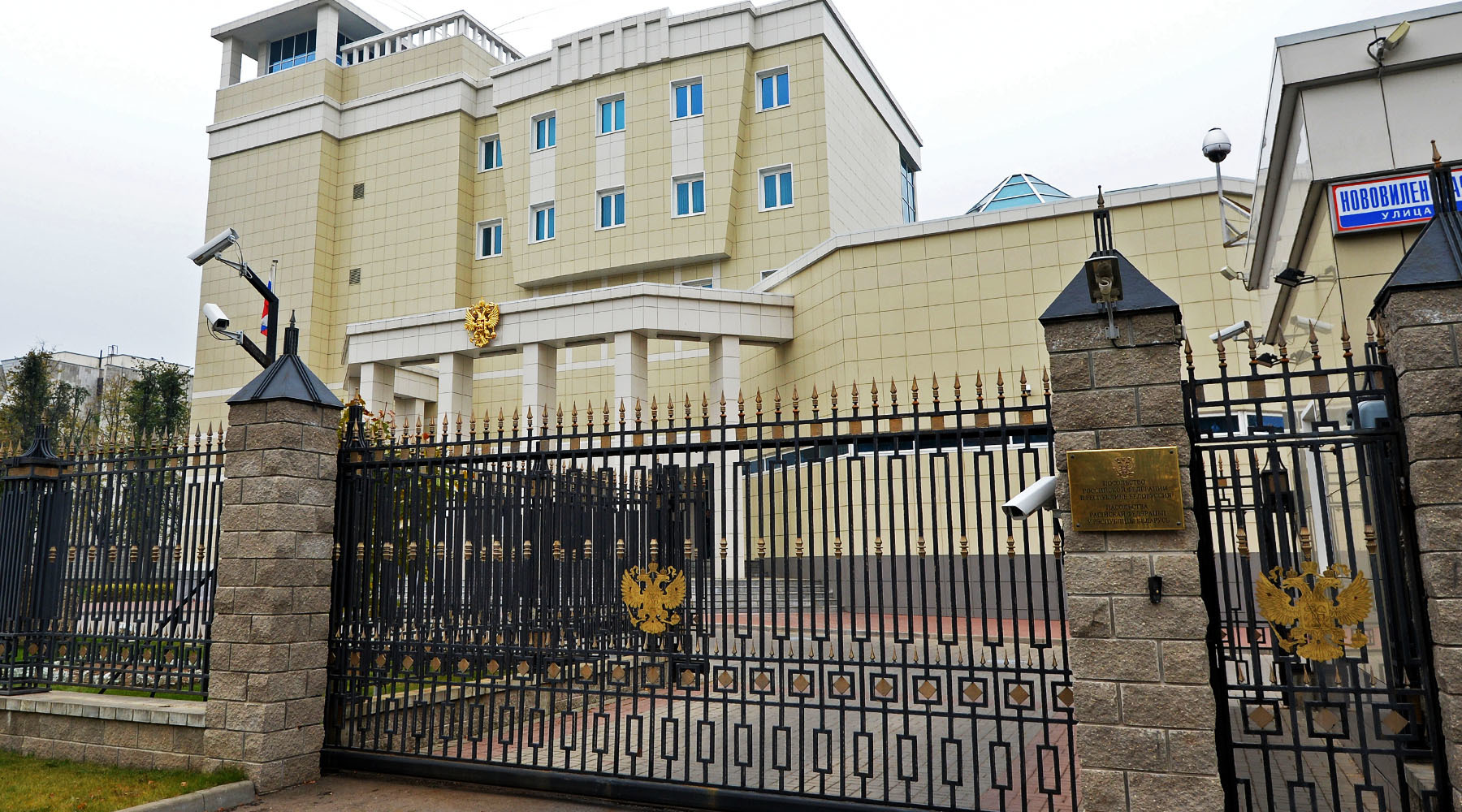The detention of Russian citizens in Belarus is a provocation organized from a third country designed to complicate relations between Moscow and Minsk in preparation for the presidential election. This was stated by the Russian ambassador to the republic Dmitry Mezentsev.
He said that on August 6 and 7, consular officials held meetings with citizens who “still do not understand the reasons for their detention, as well as the charges brought against them of preparing to participate in the riots”.
“Today convincing facts have been presented that confirm that a provocation was being prepared from a third country aimed at complicating relations between Russia and Belarus,” the TASS ambassador quoted as saying.
The diplomat pointed out that the employees of the Belarusian special services reacted to the entry of these citizens “straightforwardly and harshly”, without having complete information and without interacting with their Russian colleagues. According to Mezentsev, the inspection of the Investigative Committee of the Russian Federation will confirm the "custom nature of the large-scale scam." At the same time, the ambassador announced the readiness of the Investigative Committee staff to work together with the Belarusian side, as a result of which Russia’s innocence in the “provocative show” will be proved.
“The Russian side will not allow itself to take steps that can contribute to the violation of public order and legality, the growth of tension in fraternal Belarus, especially during the pre-election period,” the diplomat said.
Mezentsev added that the release of the Russians and their return home would be a fair and reasonable step in this situation.
In turn, the consul of Russia in Belarus Roman Popov, following a meeting with the detained citizens, noted an improvement in the conditions of their detention.
"The consuls of the Russian embassy note that the regime of detention of our citizens has changed for the better, the citizens of Russia do not express complaints about the conduct of investigative actions," he confirmed.
- The building of the Russian Embassy in Belarus in Minsk
- RIA News
- © Victor Tolochko
As a reminder, on July 29, the Belarusian news agency BelTA reported that 32 Russian citizens were detained near Minsk, and another was detained in the south of the republic. All of them, as the agency assured, were allegedly fighters of a foreign private company Wagner. The publication claimed that the detainees had stayed in a sanatorium not far from Minsk and allegedly attracted attention with "behavior uncharacteristic for Russian tourists" and appearance. At the same time, another BelTA article stated that information was received about the arrival in Belarus of "more than 200 militants to destabilize the situation during the election campaign."
After some time, the Russian Embassy officially received a notice from the Belarusian Foreign Ministry about the detention of the Russians.
A criminal case was opened against the detainees under Art. 13 (preparation for a crime) and part 2 of Art. 293 of the Criminal Code of Belarus (preparation for riots), they chose a preventive measure in the form of detention. In addition, Minsk handed over to Kiev a list of detained Russians for "checking" for their allegedly possible participation in hostilities in Donbass and the presence of Ukrainian citizenship.
After the incident, the president of the republic, Alexander Lukashenko, demanded to understand the situation, saying that the republic "has no goals to discredit the close country."
In turn, the press secretary of the Russian President Dmitry Peskov said that the Russians were in transit in Belarus, did not commit any illegal actions and had all the necessary documents.
On August 6, the Komsomolskaya Pravda newspaper, citing a source in the Russian special services, reported that the detention of Russians in Belarus was a provocation by the Ukrainian special services. The publication noted that "a comprehensive audit of Russian law enforcement agencies shows that those who decided to earn extra money while guarding abroad were simply used in the dark." The SBU "managed to create a fake project in which 180 Russian citizens were involved," the newspaper stressed, adding that the materials on the special operation were transferred to the Investigative Committee of Russia.
On Friday, August 7, Lukashenko had a telephone conversation with Russian leader Vladimir Putin, during which the parties expressed their desire to work together to sort out the situation "in the most serious way."
“The presidents agreed to thoroughly and substantively study every available fact in order to establish the true reasons for the current situation, find the culprits and bring them to justice,” the message says.

